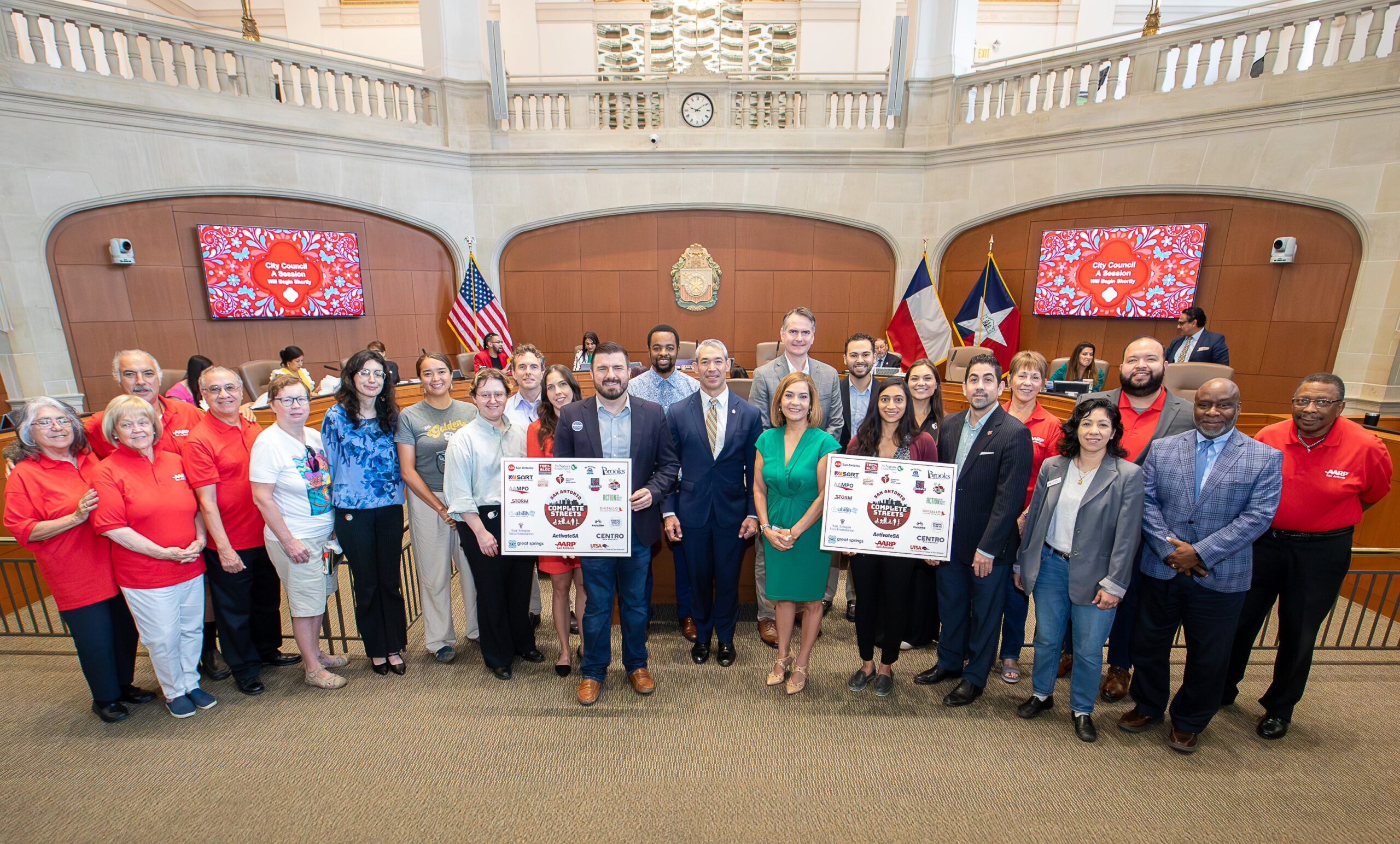
IT’S A WIN: San Antonio Complete Streets Passes!
Thanks to your efforts, an updated San Antonio Complete Streets policy has passed! As part of adopting the 2025 city budget, the San Antonio City Council updated the city’s Complete Streets policy to improve the safety, health and quality of life for all. The new Complete Streets policy was developed over a two-year period as a partnership between the City of San Antonio and members of the San Antonio Complete Streets Coalition, including the American Heart Association.

Members of the San Antonio Complete Streets Coalition with Mayor Ron Nirenberg
This will change the way San Antonio designs and builds streets and roads. Instead of focusing solely on motor vehicles, neighborhoods will be designed and built for the safety of all users including those who walk, bike, use a wheelchair, use public transportation, and drive.
“The adoption of this policy is a clear demonstration of San Antonio’s commitment to health equity. Streets that are safe and accessible for all contribute to a healthier community, where everyone has the opportunity to engage in active living and improve their heart health,” said Theresa Spiess, Executive Director for the American Heart Association in San Antonio.

AHA Government Relations Director, Alec Puente testifies before the San Antonio City Council
We would like to recognize the support provided to ActivateSA and the San Antonio Complete Streets Coalition by the Collaboration for Equitable Health, powered by Bank of America, who view this updated Complete Streets policy as a big step forward toward advancing health equity in San Antonio. The Collaboration for Equitable Health unites the American Cancer Society, the American Diabetes Association, the American Heart Association, and the University of Michigan School of Public Health to improve health outcomes for Black, Hispanic/Latino, Asian American, and Native American communities by increasing access to care, providing education, and advocating for policies that promote health equity.
Youth will benefit from the added protection, as well. Besides the obvious threat of injury, the next generation faces distinctive health needs related to a more screen time and being less active. More than one-third of kids and teens are overweight or obese, which can lead to higher risk for heart disease and stroke.
Thank you for taking action with You’re the Cure and helping make this heart-healthy policy a reality!
